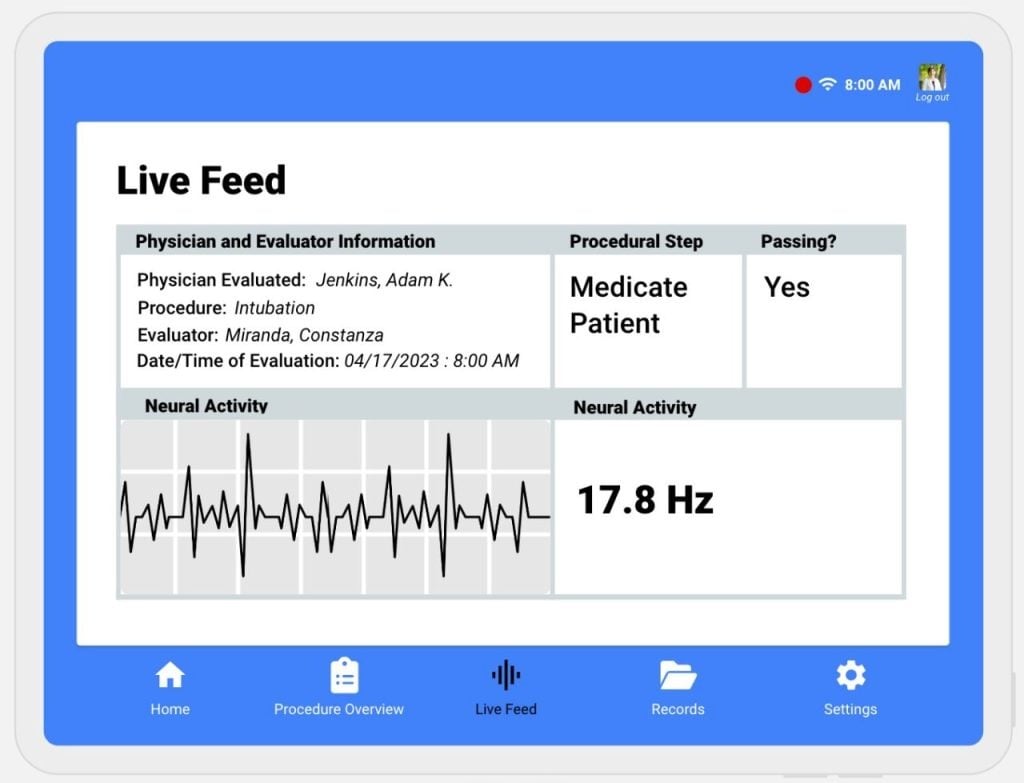CogniCap: When is a Doctor Competent?
- Noah Lu
- Jeffrey Chen
- Zoe Seely
- Siddhi Date
- Daniel Campuzano
- Ananya Eashwer
- Sai Rayasam
- Grace Huang
- Dr. Contanza Miranda (Faculty mentor)
- Dr. Deborah Schwengel (Clinical mentor)
- Dr. Serkan Toy (Clinical mentor)
- Dr. Geoffrey Miller (Committee member)
- Ignacio Villagran (Committee member)
- Justin Zhou (Teaching assistant)
Abstract:
Assessing procedural skill, the ability to perform important and often complex procedures, is crucial in medicine. However, the accepted standard today utilizes subjective feedback from faculty, instructor, or expert medical professionals based on a checklist of observable behaviors, which is often prone to subjective bias and lacks precision in medical education. Since intubation is a simple procedure that is performed by various medical personnels, it was chosen as the market entry point to revamp the evaluation method for measuring task proficiency of healthcare professionals. This change aims to bring more precise medical education and assessment.
Building on existing research that suggests strong correlation between electrical brain signals and task proficiency, our team has been developing a system to acquire high-resolution brain signals capable of distinguishing experts from novices while performing specific surgical tasks. In addition, the solution offers a much needed modular control and comfort as a wearable technology. CogniCap enables the acquisition and analysis of brain signals, and it is specifically designed for assisting and advancing the training progression of medical professionals in procedural skills. Through utilizing distinct electrode components and hardware framework to acquire brain EEG signals during procedure and using advanced software algorithms to process captured EEG signals, CogniCap establishes a connection between brain-activity and task proficiency in real time. Within a teaching and training setting, the comfortable, adjustable casing material allows the device to be worn for prolonged duration without physical perturbations. The innovative circuit design allows modular electrode components to be removed or attached to the headset at any time. Cognicap looks to become a valuable tool for medical educators and practitioners, leading to better procedural skills, assessment and potentially patient safety.

